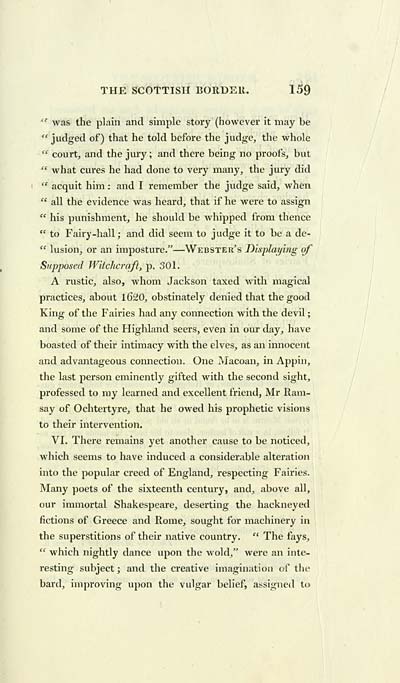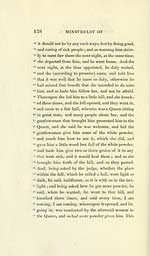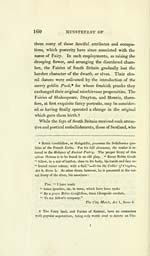Download files
Complete book:
Individual page:
Thumbnail gallery: Grid view | List view

THE SCOTTISH BORDER. 159
"" was the plain and simple story (however it may be
" judged of) that he told before the judge, the whole
" court, and the jury ; and there being no proofs, but
" what cures he had done to very many, the jury did
" acquit him : and I remember the judge said, when
" all the evidence was heard, that if he were to assign
" his punishment, he should be whipped from thence
" to Fairy -hall; and did seem to judge it to be a de-
" lusion, or an imposture." — Webster's Displaying of
Supposed Witchcraft y p. 301.
A rustic, also, whom Jackson taxed with magical
practices, about l620, obstinately denied that the good
King of the Fairies had any connection with the devil ;
and some of the Highland seers, even in our day, have
boasted of their intimacy with the elves, as an innocent
and advantageous connection. One ?tJacoan, in Appin,
the last person eminently gifted with the second sight,
professed to my learned and excellent friend, Mr Ram-
say of Ochtertyre, that he owed his prophetic visions
to their intervention.
VI. There remains yet another cause to be noticed,
which seems to have induced a considerable alteration
into the popular creed of England, respecting Fairies.
Many poets of the sixteenth century, and, above all,
our immortal Shakespeare, deserting the hackneyed
fictions of Greece and Rome, sought for machinery in
the superstitions of their native country. " The fays,
" which nightly dance upon the wold," were an inte-
resting subject ; and the creative imagination of the
bard, improving upon the vulgar belief, assigned to
"" was the plain and simple story (however it may be
" judged of) that he told before the judge, the whole
" court, and the jury ; and there being no proofs, but
" what cures he had done to very many, the jury did
" acquit him : and I remember the judge said, when
" all the evidence was heard, that if he were to assign
" his punishment, he should be whipped from thence
" to Fairy -hall; and did seem to judge it to be a de-
" lusion, or an imposture." — Webster's Displaying of
Supposed Witchcraft y p. 301.
A rustic, also, whom Jackson taxed with magical
practices, about l620, obstinately denied that the good
King of the Fairies had any connection with the devil ;
and some of the Highland seers, even in our day, have
boasted of their intimacy with the elves, as an innocent
and advantageous connection. One ?tJacoan, in Appin,
the last person eminently gifted with the second sight,
professed to my learned and excellent friend, Mr Ram-
say of Ochtertyre, that he owed his prophetic visions
to their intervention.
VI. There remains yet another cause to be noticed,
which seems to have induced a considerable alteration
into the popular creed of England, respecting Fairies.
Many poets of the sixteenth century, and, above all,
our immortal Shakespeare, deserting the hackneyed
fictions of Greece and Rome, sought for machinery in
the superstitions of their native country. " The fays,
" which nightly dance upon the wold," were an inte-
resting subject ; and the creative imagination of the
bard, improving upon the vulgar belief, assigned to
Set display mode to: Large image | Transcription
Images and transcriptions on this page, including medium image downloads, may be used under the Creative Commons Attribution 4.0 International Licence unless otherwise stated. ![]()
| Early Gaelic Book Collections > J. F. Campbell Collection > Minstrelsy of the Scottish border > Volume 2 > (171) |
|---|
| Permanent URL | https://digital.nls.uk/80616743 |
|---|
| Description | Vol. II . |
|---|---|
| Shelfmark | Cam.2.d.18 |
| Attribution and copyright: |
|
| Description | Volumes from a collection of 610 books rich in Highland folklore, Ossianic literature and other Celtic subjects. Many of the books annotated by John Francis Campbell of Islay, who assembled the collection. |
|---|
| Description | Selected items from five 'Special and Named Printed Collections'. Includes books in Gaelic and other Celtic languages, works about the Gaels, their languages, literature, culture and history. |
|---|

